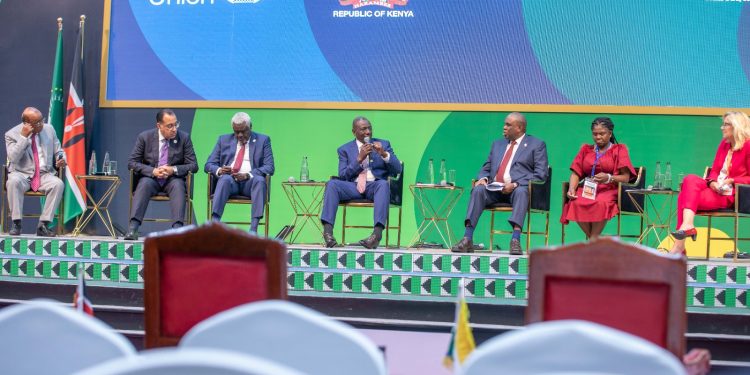Credit rating agencies and multilateral lending institutions came under fire over their business practices at the Africa Climate Summit (ACS).
Sudanese-British billionaire businessman Mohammed Ibrahim and Kenya President William Ruto questioned operations of the credit rating agencies. President Ruto said the agencies are ‘destroying African economies’.
“How do you expect the continent to attract investments if the rating agencies keep on classifying most of the economies as junk, the investors out there want to do business with Africa, but the rating agencies make it difficult,” said Ibrahim.
“The Pension Funds, Insurance companies fear investing in Africa for fear of the law in dealing with risky economies,” he noted.
He sensationally questioned the model of the rating agencies, where they act as auditors and at the same time as consultants. “You cannot grade people and later on turn around to offer them consultancy on how to improve on those grades. It’s a conflict of interest, people go to jail because of that.”
President William Ruto claimed the algorithms of the rating agencies is faulty and not based on empirical science. “Candid discussion about their data and findings need to begin.”
Ibrahim also questioned the governance of World Bank and International Monetary Fund (IMF), rooting for World Bank to have independent directors.
In August, Moody’s Credit Rating Agency came under fire from the Africa Peer Review Mechanism (APRM) over comments on Kenya’s planned buyback of its Eurobond debt as a default.
APRM viewed Moody’s speculative comments on Kenya’s default event as a pre-emptive rating action and equates it to a premature release of a credit rating to the public. APRM warned against the continued impromptu pessimistic and negative commentaries by Moody’s rating analysts, who it says are neither linked to any rating action or possess any in-depth research reports on the matter.
The AU institution is pushing for Africa Network of National Regulators of Rating Agencies to institute appropriate regulatory measures to ensure proper conduct of credit rating business.
Apart from Moody’s grim outlook, Kenya has also gotten downgrades from Fitch as well as S&P Global Ratings.
In July, Fitch Ratings revised the Outlook on Kenya’s Long-Term Foreign-Currency Issuer Default Rating (IDR) to Negative from Stable and affirmed the IDR at ‘B’. Fitch said the revision of Kenya’s Outlook to Negative reflects increased external financing constraints amid high funding requirements, including a US$2 billion Eurobond maturity in 2024, weakening international reserves, rising financing costs, and uncertainty regarding the fiscal trajectory, for example, due to execution risks of the announced tax hikes amid social unrest.
Moody’s Comments on Kenya’s Eurobond Buyback Plan ‘Speculative’ – APRM (kenyanwallstreet.com)




